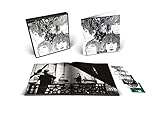
Singer-actor Trini Lopez was born in Dallas on May 15, 1937. At the age of 26, he had his first hit recording with “If I Had a Hammer.”
Lopez’s released a live album as his first record, Trini Lopez at PJ’s, in 1963. That album featured his live version of “If I Had a Hammer” that became a hit song for him.
Although the song seems timeless, Pete Seeger and Lee Hays wrote “If I Had a Hammer” in 1949 and first recorded it in 1950 as “The Hammer Song” with The Weavers. I believe the first time I heard the song was in the version by Peter, Paul & Mary. They had a top ten hit with the song in 1962, one year before Lopez’s release.
Other artists continued to record the anthem, even immediately after the hit versions by Lopez and Peter, Paul and Mary. For example, Sam Cooke featured a live version of the song on his 1964 album Sam Cooke at the Copa. And Martha and the Vandellas included their version on the 1963 album Heat Wave.
There is something about the song about the hammer. It reminds me of “The Riddle Song (I Gave My Love a Cherry)” where the final verse of the songs answers the riddles about the cherry, the ring, the chicken, and the baby. Perhaps the way “If I Had a Hammer” is similarly structured gives it the timeless quality of the old English folk song, “The Riddle Song.”
As others have noted, though, with “If I Had a Hammer,” Seeger and Hays beautifully combined activism with a popular song format. The lyrics re-purpose the working person’s hammer, the laborer’s song, and the work bell. And the writers use those tools as patriotic instruments to change the world and protect civil rights.
And while “The Riddle Song” is melancholy like a lullaby, “If I Had a Hammer” has more energy. Lopez’s driving version really captures that it is a song about the hammer of justice, the bell of freedom, and the song about love between my brothers and my sisters.
What is your favorite version of “If I Had a Hammer”? Leave your two cents in the comments.






